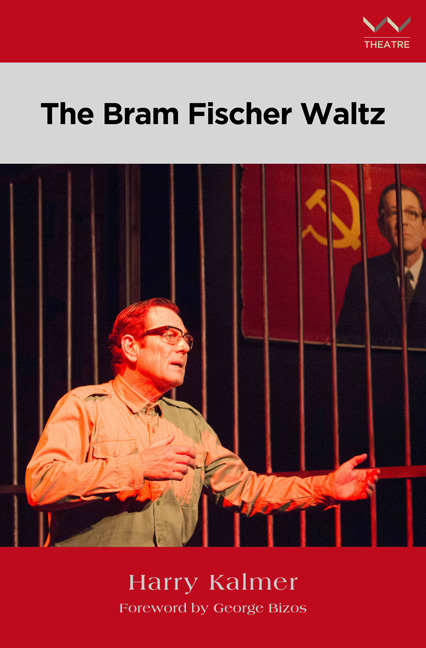Scene 6
from The Bram Fischer Waltz
Published online by Cambridge University Press: 21 March 2018
Summary
Lights up onBRAMwith hat, tweed jacket, picnic basket and binoculars. He is short of breath. An African marching band slightly off-key, plays in the distance.
BRAM [calling to Molly and children offstage]: Molly … Over here … Mens kan beter sien [One can see better] …
Come Ruth … Ilse …
BRAMtakes out a handkerchief and wipes his face.
Sjoe, it's a stiff climb up this hill isn't it … [looks through binoculars]. Just see how neat the stage is. And the people! The police tried to stop them from coming but it was in vain … Just look at all the people. How many people do you think there are, Molly? Look at the stalls … the ANC flags … the posters. Look girls: ‘Equal rights for all.’ It's like a church bazaar. You're not looking at a soccer field in Kliptown, kids … But at history being made. Look there's Oom Piet … Uncle Piet Beyleveld…
The Special Branch and Blackie Swart's banning order prevent us from being there, Molly. But Piet Beyleveld is on the stage to keep the name of the communists high.
In the background we hear a voice reciting the Freedom Charter. BRAM mimes the activities of pouring tea, etc. Every now and then he lifts the binoculars. Claps and cheers.
Some people in the ANC said the communists hi-jacked the Freedom Charter. But it is not true. Rusty Bernstein may have written it, but his words were just the wishes of the grannies and mine workers written on brown OK Bazaars shopping bags. Thousands of little pieces of paper that were all over their house for months while they were working on it. The Freedom Charter wasn't written by the communists but by the wishes of the people of South Africa.
BRAM addresses the audience and changes back into prison gear.
At 3.30 on the afternoon of the second day the police struck … They said that those who were there were suspected of high treason. When the people realised what was going on, they started singing ‘Nkosi Sikelel’ iAfrika’.
- Type
- Chapter
- Information
- The Bram Fischer Waltz , pp. 38 - 40Publisher: Wits University PressPrint publication year: 2016



